Double Feature at Hampstead Theatre
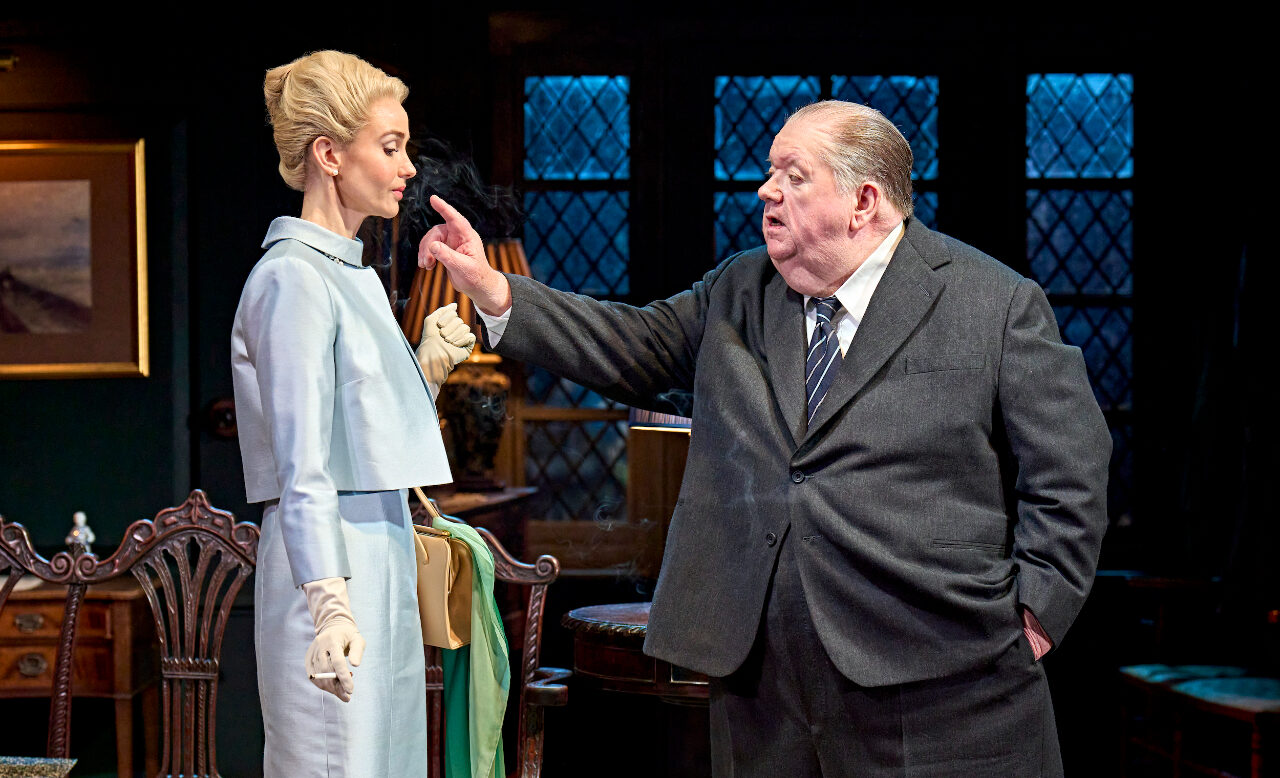
John Logan scooped numerous Tony Awards for Red, but the prolific writer is arguably best known for his screen rather than stage plays. His impressive credits include Any Given Sunday, Gladiator, The Aviator and Skyfall. Combining his obvious love and knowledge of film and his first-hand Hollywood experience with his understanding of theatre, Logan’s latest effort casts a light on heavyweights Hitchcock and Vincent Price.
It’s 1967 and we are in the rented country cottage of writer/director Michael Reeves during the shooting of his picture Witchfinder General. The studio has insisted on a big name to draw in audiences, much to Reeves’s vexation. That name happens to be Vincent Price, legend of the horror genre. Reeves is only 24, fizzing with frantic ambition and determined to portray realism on screen. Price argues that escapism is favoured by cinemagoers. The two collide creatively over the place of art within film and Price is threatening to walk. Just what will Reeves do to keep him onboard and save his movie?
Without warning, the startlingly real silhouette of a young Tippi Hedren appears and enters. She is soon followed by a shuffling, morbidly obese Hitchcock and we find ourselves witnessing parallel timelines. While Price and Reeves remain on stage, they are silenced as our attention is focused on Hitchcock and his muse. It is now 1964 and we’re in the director’s English-style cottage on the Universal lot.
Hitchcock is mid-shoot on Marnie – the second and final feature Hedren worked on for the director following her starring role in his horror classic The Birds. It has been well documented that Hitchcock and Hedren had a turbulent working relationship, even inspiring the Sienna Miller TV movie The Girl. While Hitchcock to this day remains a ground-breaking, respected auteur, Logan is not afraid to explore the seedy and repulsive behaviour of a titan protected by the power and status his Hollywood career afforded him. He had Tippi, and many other girls, on contract and was known to cancel careers before they even started. Still mourning the retirement of his three-time collaborator Grace Kelly in 1956, Hitchcock was forever determined to find his next “girl”.
Upon reading the synopsis you would be forgiven for questioning the parallels between these two stories. In fact, Logan initially considered separate self-contained acts concentrating on each pairing. Any initial scepticism is soon quashed as we observe shifting power dynamics and examine the idea of art versus consumerism as well as the personal sacrifices creatives make to produce their work. Occasionally lines of dialogue across the two pairings overlap and scenes seamlessly shift, much like the transitions of a movie. It all somehow works thanks to Jonathan Kent’s direction, a sharp script brimming with film references and some fine performances.
The cast have the challenge of playing real people (three of whom are long deceased) without allowing thinly drawn stereotypes to prevail. Jonathan Hyde embodies Price perfectly, even cooking a meal from scratch and eating it before us. Price co-wrote a series of cookbooks and was known for his love of food. Hyde exhibits excellent comic timing and provides a pleasing contrast to Rowan Polonski’s arrogant, uptight Reeves. We feel for the young director – who would accidentally die of a prescription drug overdose shortly after the release of Witchfinder General – during his most vulnerable moments. In one humorous scene, we switch from amusement at Reeves endeavouring to tone down Price’s performance to shifting uncomfortably as he unexpectedly bares his fragility.
Ian McNeice perhaps has the hardest job in that Hitchcock is the most prone to coming across as a caricature. The actor prevents this, conveying a man who saw life through a lens, flitting between reality and the worlds within his head. Joanna Vanderham does a stellar job opposite him. We believe in her insecurities around the director – she knows she is not the most talented actor and is there mainly because of her looks. We see her discomfort and repulsion but also revel in the fact that, although long before the #metoo movement, this was a strong-willed woman rather than a wallflower. When she delivers some brutal home truths to Hitchcock we rejoice, although there is the feeling that a little more confrontation such as this would have been to the play’s benefit.
This niche play might lack the alluring spark of Jack Thorne’s current West End hit The Motive and the Cue, which treads similar territory. It might also leave one aching for more in the way of accessible plot and further character development. Those with knowledge of and interest in cinema, however, will find much to enjoy in this intelligent and engaging production.
Jonathan Marshall
Images: Manuel Harlan
Double Feature is at Hampstead Theatre from 8th February until 16th March 2024. For further information or to book visit the theatre’s website here.

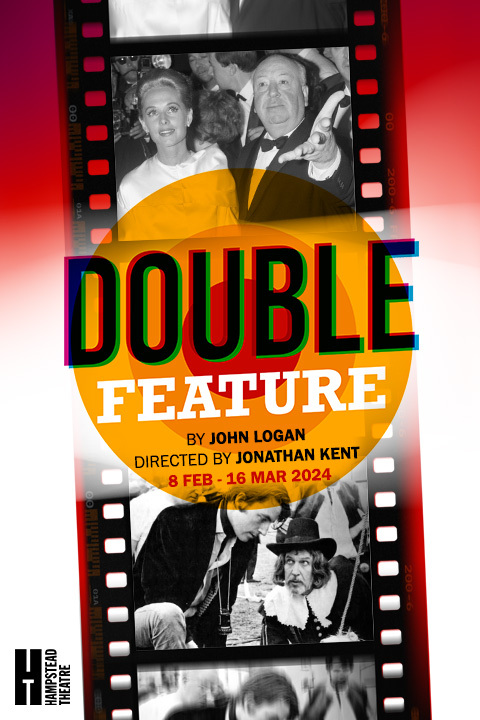
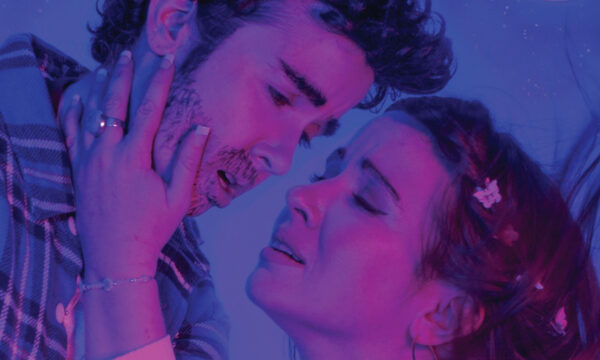
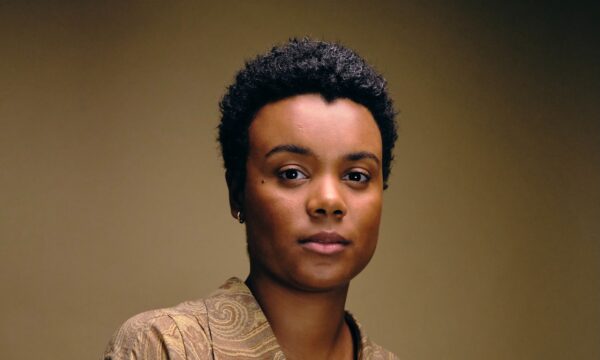

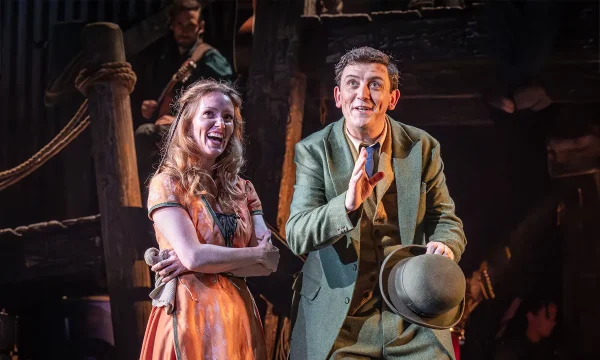
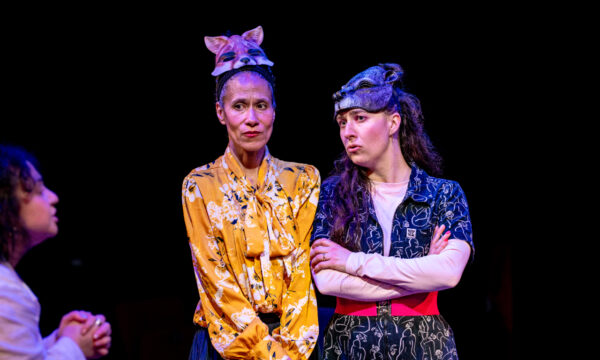
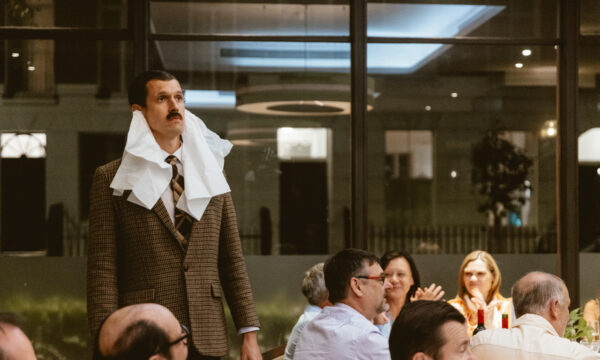
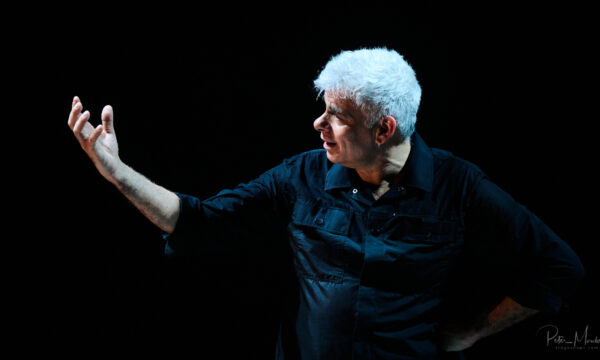
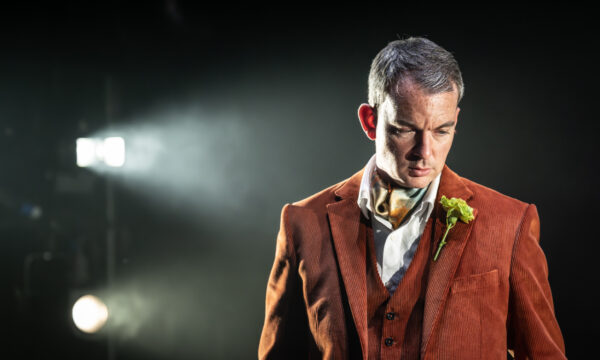
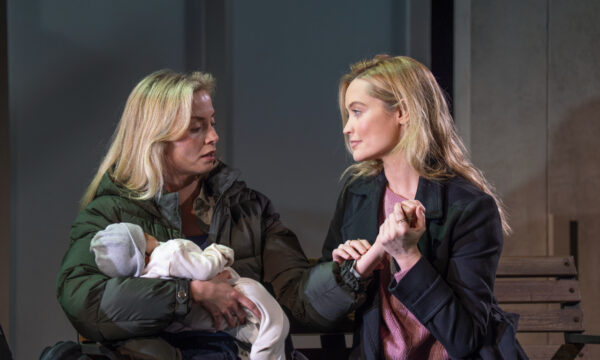














Facebook
Twitter
Instagram
YouTube
RSS